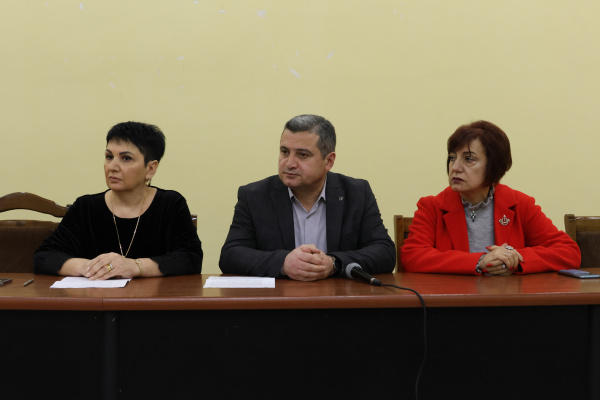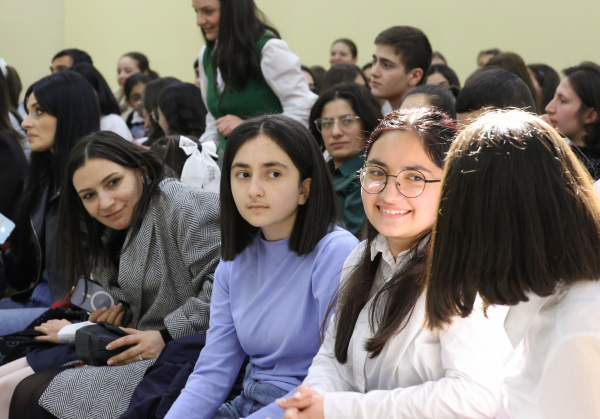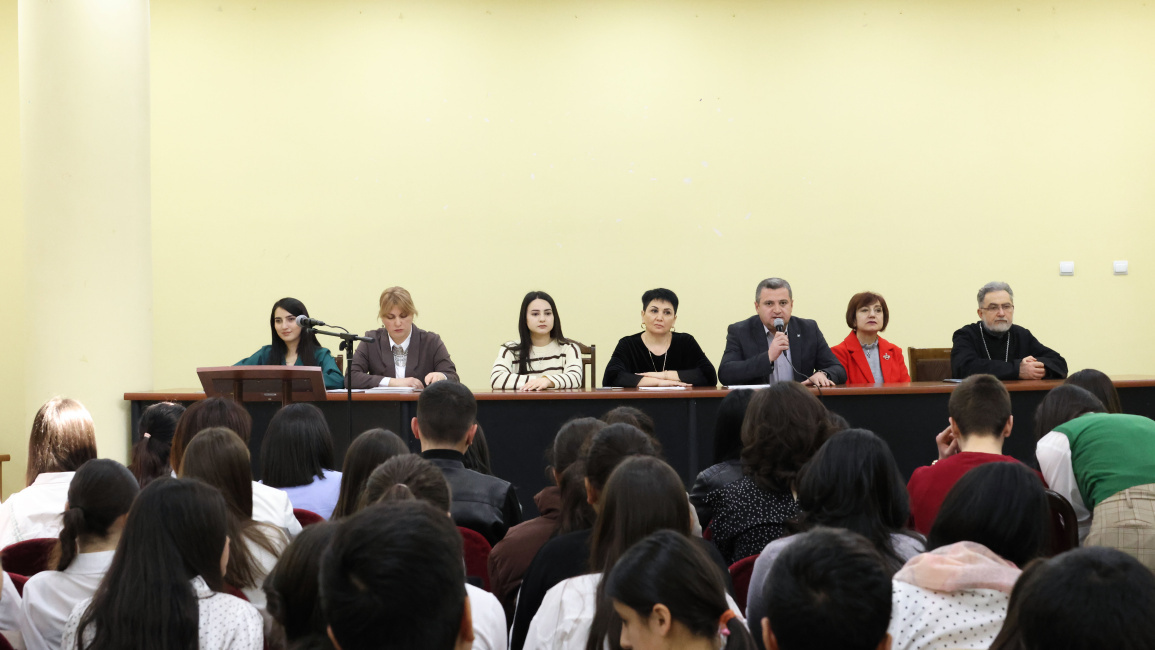The results of the Classical Armenian Olympiad, held in November, were summed up at the YSU Faculty of Armenian Philology. Students from different schools in the republic won 10 nominations.
Arshaluys Galstyan, Dean of the YSU Faculty of Armenian Philology, highlighted the significance of holding such events at the university. Although the Chair of Armenian Language History and General Linguistics has traditionally organized numerous events and olympiads focusing on Classical Armenian (Grabar), the "Classical Armenian Language" competition is noteworthy for being the first Olympiad organized specifically for schoolchildren.

"I place great importance on organizing such events to preserve and promote Grabar, our golden dialect," Galstyan said. "I hope this Olympiad will become a regular event, and I am sure that YSU will continue to provide a welcoming environment for all those eager to study and explore our language."
Professor Anna Abajyan, Ph.D., Head of the Chair of Armenian Language History and General Linguistics, played a key role in organizing the Olympiad.
Emphasizing the importance of the competition and defining the goals, A. Abajyan said: "The purpose of holding this competition, which is completely new and unique in its kind, officially approved in advance by MoESCS, is teaching, valuing and spreading Grabar, as well as strengthening the connection between YSU and schools. Thanks to such competitions, schoolchildren also have the opportunity to visit the mother faculty of the mother university, to get acquainted with the wide opportunities offered by the university to study the Armenian language. I hope that such a close connection will also ensure a flow of future qualified philologists to YSU."
Mane Ghevondyan, co-organizer of the competition,President of the "Classical School" Educational Foundation, expressed the symbolic importance of this collaboration with YSU's founding faculty. "The Faculty of Armenian Philology at YSU is crucial for preserving Classical Armenian. The deep and comprehensive teaching of the language and the training of qualified specialists are central to its mission. In the 21st century, Grabar's material remains invaluable, and every contribution is valuable."
Students from schools across Yerevan and various provinces who advanced to the final stage also attended the event. Mayis Petrosyan, a 10th-grade student from Artashat High School, shared that his team chose to present Armenian chants created in Grabar.
"I joined my team in the third stage with great enthusiasm. I truly love Grabar and appreciate its role as a testimony of our ancient history," Mayis said.

Notably, more than 170 students from Yerevan and seven provinces - Armavir, Ararat, Kotayk, Lori, Gegharkunik, Syunik, and Tavush - participated in the competition. They worked in schools from November to March under the guidance of teachers.
The competition featured three stages: in the first two stages, the students’ reading of the material in Grabar was checked, which pursued the goals of promoting Grabar reading, as well as introducing the works in Grabar.
The final stage (70 participants) involved creative projects in Classical Armenian, such as comics, videos, and animations. This format not only increased interest in Classical Armenian but also fostered students' creativity and digital skills.
At the Olympiad's conclusion, winners received cash prizes (sponsored by Instigate Company), certificates, books, and their teachers were awarded Armenian-made tablet computers (sponsored by Butech Company).
The competition was organized in collaboration with the Chair of Armenian Language History and General Linguistics at YSU, the Faculty’s Student Scientific Society, the Ararat Patriarchal Diocese, the "Real School" Educational and Cultural Foundation, and the "Classical School" Educational Foundation.


